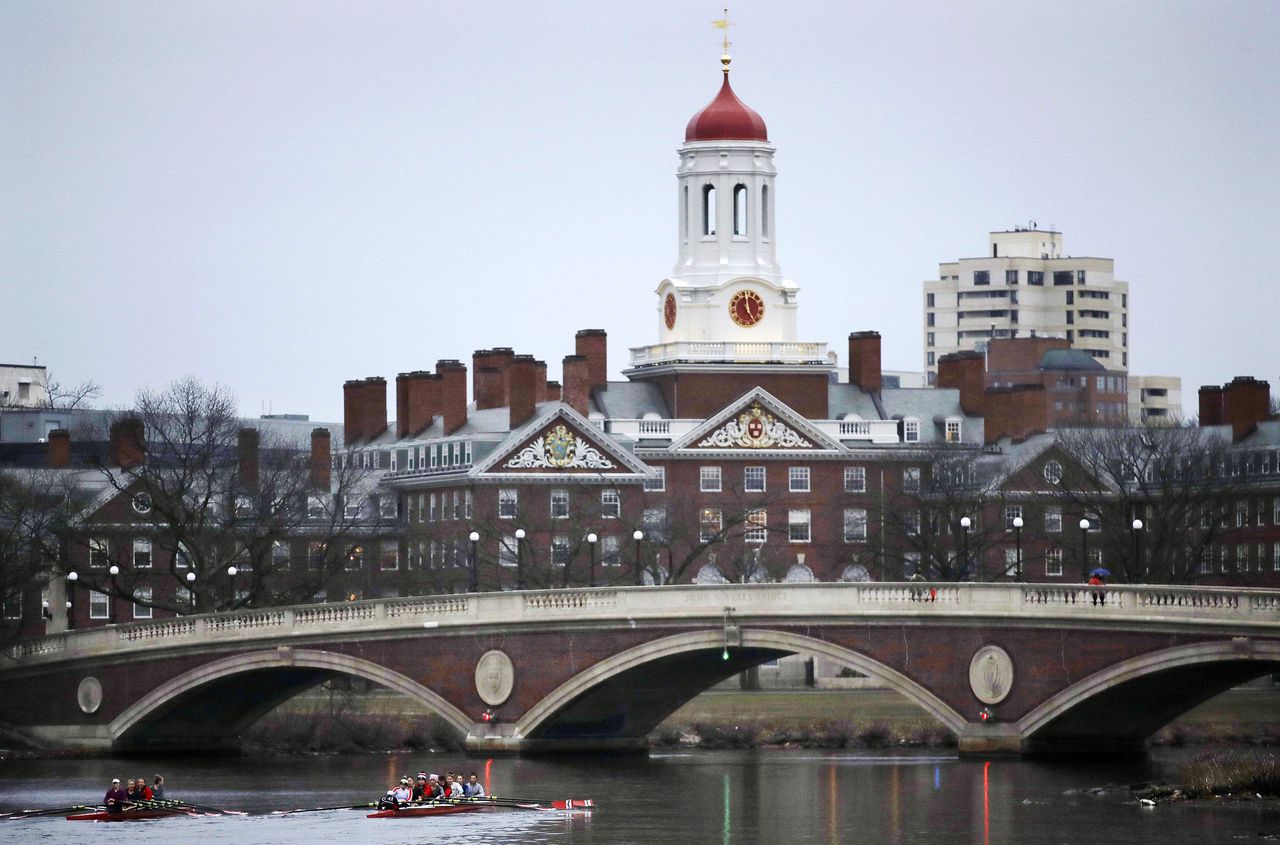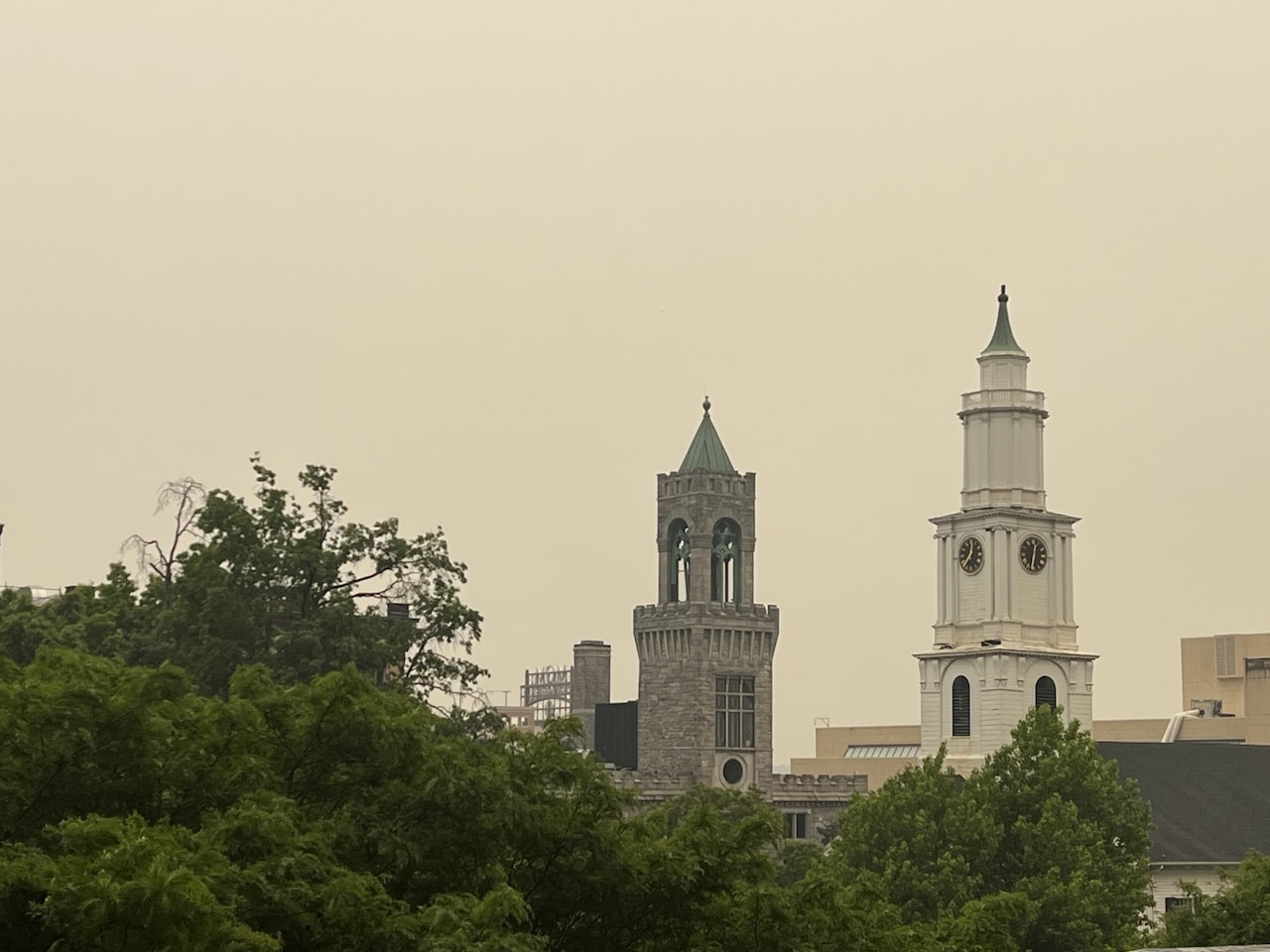
The Department of Education is opening up an investigation into Harvard University’s legacy admission practices after a civil rights group filed a federal complaint with the department’s office of civil rights earlier this month. The complaint accuses the school of favoring white applicants, while systematically disadvantaging applicants of color.
“It’s a discriminatory practice,” said Micheal Kippins, a Litigation Fellow for the Lawyers for Civil Rights, a legal group based in Boston during an online press conference. “It is an unfair and unearned advantage for students or applicants who have applied with these preferences in mind, that they’re able to gain that advantage simply by the family that they were born into, and have not attributed that to any particular individual merit.”
Although Harvard University did not immediately respond to MassLive’s request for comment, the school has defended its use of legacy admissions in the past. In a June 2018 filing to the Massachusetts federal court, the school said that its consideration of legacy applicants, “helps to cement strong bonds between the university and its alumni” and that alumni help financially support the school.
The legal group, which represents three education equity groups — The Chica Project, African Community Economic Development of New England, and Greater Boston Latino Network — claims that admission practices that favor the children of alumni or wealthy donors violate Title VI of the Civil Rights Act of 1964.
“This opportunity that the U.S. Department of Education has decided to open [an] investigation is a very welcoming and promising opportunity that we [are] excited [for] as a community that to see that this is a process that we really take the time,” said Abdulkadir Y. Hussein, the founder and executive director of ACEDONE. “But at the end of that final analysis for these things, we’re hoping that it will serve justice for all.”
Almost 70% of Harvard’s donor-related and legacy applicants are white and receive a substantial “boost” to their application, according to the federal complaint. Donor-related applicants are almost seven times more likely to be admitted than non-donor-related applicants, while legacies are nearly six times more likely to be admitted into the school. Combined, these students represent 15% of the admitted students at Harvard University.
For Zaida Ismatul Oliva, the executive director of the Chica Project, legacy admissions leave young women of color – like the ones she mentors – out of the equation in college admissions.
“Young women of color, specifically, one of the biggest barriers in attending college is that they don’t see themselves as a possibility, that they don’t see that this is for them,” Oliva said. “This is sending the wrong message to our group of young women saying that they’re automatically going to be held out of this equation and we think that this is really unfair.”
The Lawyers of Civil Rights is also requesting for the Department of Education to order Harvard to halt their legacy and donor preference practices if the institution wants to maintain eligibility for federal funding.
“Harvard is on the wrong side of history,” said Oren M. Sellstrom, the litigation director for the Lawyers for Civil Rights. “Momentum is growing, as more and more colleges and universities abandon these unfair preferences, those that claim to them will increasingly be seen as outliers.”
Last month, the Supreme Court of the United States of America ruled against the use of affirmative action in higher education, a decision that has sent shockwaves through the college landscape. Since then, a number of prestigious universities have made the decision to discontinue legacy admissions, with the University of Minnesota-Twin Cities and Wesleyan University being the latest to do so.
“In the wake of the recent Supreme Court decision regarding affirmative action, we believe it important to formally end admission preference for legacy applicants,” said Michael S. Roth, president of Wesleyan University, in a statement last week. “We still value the ongoing relationships that come from multi-generational Wesleyan attendance, but there will be no ‘bump’ in the selection process.”
As for now, there is no set duration for how long it’ll take the Department of Education to complete its investigation. Nevertheless, for Kippins, the more important issue at hand is getting the investigation right.
“With respect to the timing, yes, it’s important that we push forward and that we maintain this momentum,” Kippins said. “But ultimately, the idea is we want Harvard to be on the right side of history and as we’ve heard before they are currently on the wrong side of history.”






